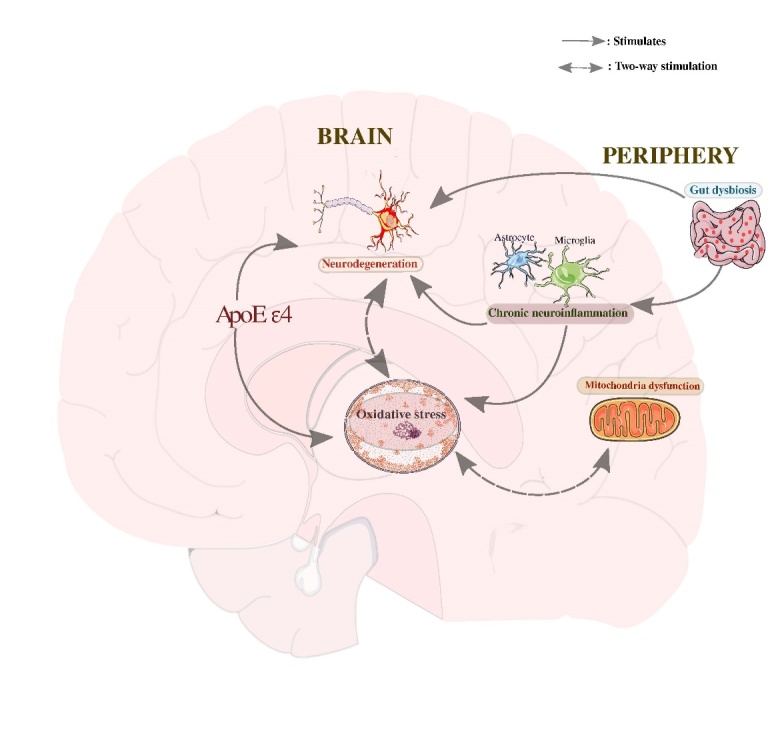Figure 1.

The various pathways resulting in oxidative stress and neurodegeneration. Lipopolysaccharides from gut dysbiosis impair the blood-brain barrier integrity, leading to neuroinflammation and neurodegeneration. During neuroinflammation, the activations of microglia and astrocytes enhance free radical synthesis that progressively increases the risk of oxidative stress. Furthermore, there is a higher risk of β-amyloid aggregation and oxidative stress in the absence of thiol-mediated antioxidant properties of APOE-ε4. β-amyloid plaques trigger neuronal damage and oxidative stress via the oxidant-antioxidant system disequilibrium. Chronic oxidative stress impairs mitochondrial function that exacerbates oxidative insults and causes neuronal dysfunction. Also, oxidative stress upregulates amyloid precursor protein, which may result in neurodegeneration. Relevant references are in the main text.
